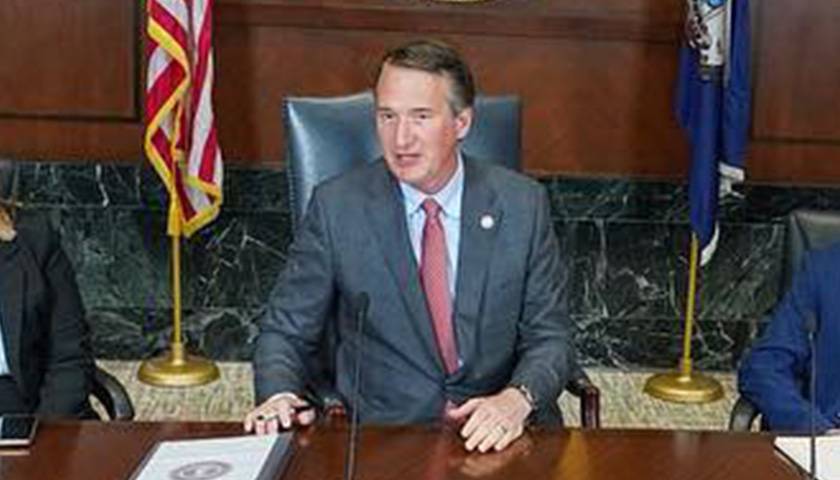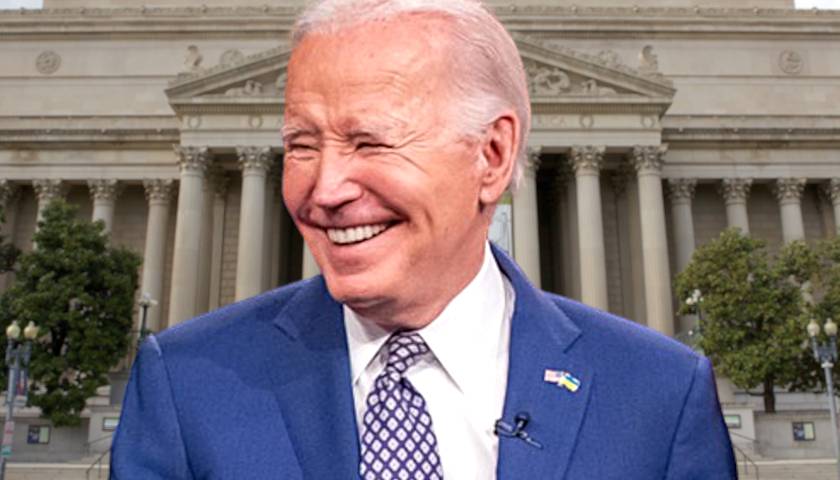by Madison Hirneisen
Virginia lawmakers will return to Richmond next week to consider Gov. Glenn Youngkin’s proposed amendments and recommendations to 78 bills sent to his desk during the legislative session.
Last week, Gov. Glenn Youngkin signed more than 700 bills into law, vetoed three bills and submitted recommendations for 78 others. The legislature is set to reconvene for a one-day session in Richmond April 12 to consider the governor’s proposed recommendations and take votes on whether to accept or reject the governor’s amendments.
Youngkin’s administration is seeking changes to a range of bills, including measures setting regulations for hemp and updates to the “skinny” budget passed by lawmakers before the end of the session, as previously reported by The Center Square.
A few more measures the governor wants to amend include:
Banning ‘foreign adversaries’ from buying farmland
The governor has offered a substitute for a bill that bans “foreign adversaries” from purchasing agricultural land in the commonwealth. The bill, as originally passed by the legislature, defines “foreign adversaries” as any foreign government determined by the U.S. Secretary of Commerce to have engaged in a “long-term pattern or serious instances of conduct significantly adverse to the national security of the United States.”
The U.S. Secretary of Commerce has designated five nations and one individual as “foreign adversaries” – the People’s Republic of China, Cuba, Iran, North Korea, Russia and Venezuelan politician Nicolás Maduro.
The bill was initially proposed by Youngkin during his State of the Commonwealth address in January, where he called for lawmakers to send him a bill to “prohibit dangerous foreign entities tied to the CCP (Chinese Communist Party) from purchasing Virginia farmland.” Lawmakers in the General Assembly ended up sending two identical bills to the governor’s desk that would ban foreign adversaries from purchasing such farmland, but Youngkin is now seeking additional changes.
Specifically, the governor’s proposed amendments changes the definition of “interest in agricultural land” to mean any “right, title or interest, direct or indirect” in agricultural land or an entity that “holds any right, title or interest, direct or indirect, in and to agricultural land.” The governor’s amendments would also allow the Attorney General or local attorney for the locality where the agricultural land is located to file an action to “eject the foreign adversary from possession” if an “interest in agricultural land has been acquired” in violation of the law.
Macaulay Porter, the governor’s spokeswoman, said in a statement to The Center Square the governor’s recommendations are “technical and clarifying amendments related to enforcement.”
“Since day one, Governor Youngkin has utilized his business experience to take on China, ensure taxpayer dollars in Virginia don’t enrich the Chinese Communist Party, and is thrilled we will now protect the Commonwealth’s farmland from dangerous foreign entities,” Porter said.
Oyster shell recycling
Yougnkin is also seeking changes to a bill that proposed rewarding oyster shell recycling via grants. Under the original bill that passed the General Assembly, individuals could be awarded grants of $4 per bushel of oyster shells donated to nonprofits for use in restoration projects. The grants would be capped at $1,500 per person annually.
The bill passed by the General Assembly would have also created the Oyster Shell Waste Diversion Fund, which is where the grant funding to reward recycling would be allocated from. Disbursements from the fund would be made by the State Treasurer.
Under Youngkin’s proposed substitute bill, the funds to reward oyster shell donations would come from the existing Oyster Replenishment Fund. The governor’s substitute would also allow the “encouragement of oyster shell donations” to be determined by the Marine Resources Commission and says that grants “may be awarded in an amount equal to $4 per bushel of oyster shells.”
Exceptions to carrying a firearm in Capitol Square
While several firearm-related bills were killed during the legislative session, lawmakers did agree to pass a bill establishing an exception for State Police officers to the existing prohibition of carrying a firearm within Capitol Square and in state-owned or leased buildings.
Specifically, the bill passed by lawmakers would allow off-duty State Police officers and retired State Police officers who have completed annual firearms training to carry a firearm in Capitol Square and state-owned buildings.
Youngkin has proposed a technical amendment to the bill that would also allow off-duty and retired Capitol Police officers to carry a firearm in Capitol Square and state-owned buildings.
– – –
Madison Hirneisen is a staff reporter covering Virginia and Maryland for The Center Square. Madison previously covered California for The Center Square out of Los Angeles, but recently relocated to the DC area.
Photo “Glenn Youngkin” by Glenn Youngkin.




